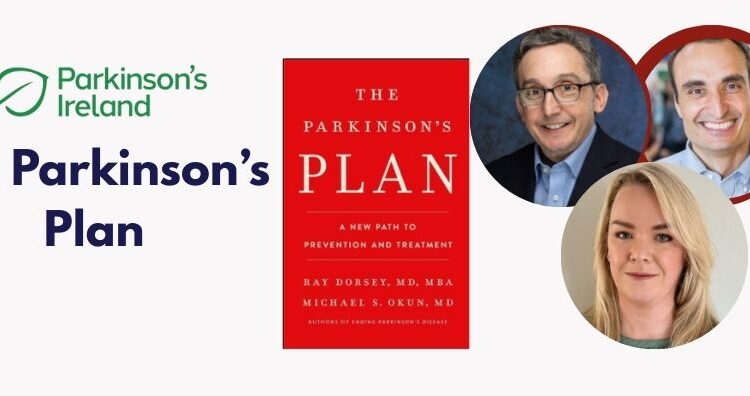Parkinson’s disease has long been seen as an unavoidable consequence of aging or genetics—but leading…

DNI Research Newsletter
Written by Clodagh O’Keefe, Research Coordinator, Dublin Neurological Institute
As spring arrives and the garden of 57 Eccles Street bursts into life, we’re reminded of the opportunities that come with a fresh start. This season is a natural time for reflection and renewal, making it the perfect moment to launch new research projects, explore emerging ideas and new collaborations look ahead to the discoveries the coming months may bring.
In January, the research team was joined by Dr Maeve Bradley, who has hit the ground running. Dr Bradley will be completing an MD, focused on clinical, environmental, psychological and biomechanical contributors to falls in people with Parkinson’s Disease. Incorporating wearable technologies, and sensors as well as exploring people’s experiences, Dr Bradley aims to piece together the complex reasons behind falls, which will then help inform the best course of action to prevent falls in future. Dr Bradley is currently recruiting participants for her research study which involves an assessment of balance while wearing several sensors to measure stability and the completion of clinical questionnaires.
This year, we will also be joined by Mr Jack Horan, specialist registrar in Neurosurgery who will carry out research in the DNI, in conjunction with Beaumont’s Neurosurgical Department. Mr Horan’s research will be focused on the new technology embedded in Deep Brain Stimulators which provides fascinating insights into the activity of the brain during tasks. Mr Horan will primarily focus on understanding the brain networks of people with Dystonia and the impact of Deep brain stimulation on their condition.
Dr. Eoghan Donlon is in the final stages of his research project, aiming to optimise stimulation programming for those with Deep Brain stimulation. When fine-tuning the stimulation parameters for Deep Brain Stimulation, common indicators of an excess of stimulation include subtle changes in speech or twitching of the muscles in the arms and face. These effects are often only noticed after some time, once the person has gone home. Using sensitive electrodes to record muscle activity and microphones to collect speech, Dr Donlon hopes to find evidence of subtle changes in muscle activity and speech, while in the clinic, therefore optimising the stimulation settings sooner and reducing the number of clinic visits needed to reach the ideal stimulation settings. Dr Donlon has recruited 15 participants with Deep brain stimulation for this study but is still keen to recruit additional participants.
Dr Amy Gallagher is continuing her research into genetic forms of Parkinson’s Disease such as the PARK2 gene mutation. Dr Gallagher is investigating how the symptoms of people with two mutations in the recessive PRKN/PARK2 (Parkin) gene differ to those who have gene-negative early onset Parkinson’s disease, and whether unaffected carriers of a single PARK2 mutation are impacted at all.To date, she has collected skin samples, cognitive profiles, eye tracking data, and handwriting assessments from over 40 participants. Once branch of her extensive project which investigates eye movement, found that when looking towards a target, those with the genetic PARK2 mutation tend to make earlier and less accurate eye movements, compared to unaffected controls and those with idiopathic Parkinson’s disease. Data collection is set to continue in the coming months, and those with early onset Parkinson’s’ disease are encouraged to take part.
With many exciting studies, underway and even more beginning, we are excited to see these research projects develop and contribute to new knowledge and opportunities. Recruitment is in full swing for many of our research studies. If you are interested in participating in any of our ongoing research projects or would like to hear more about them, please don’t hesitate to contact our Research Coordinators John Inocentes and Clodagh O’Keeffe by phone at +018535033 or by email at research@dni.ie.

